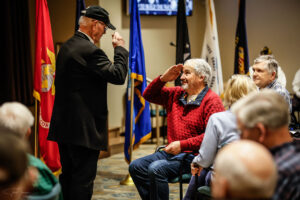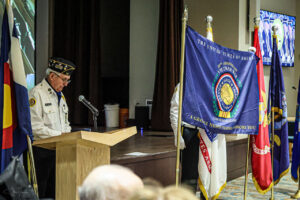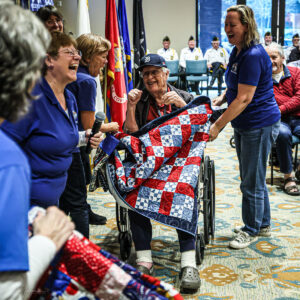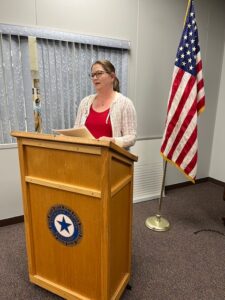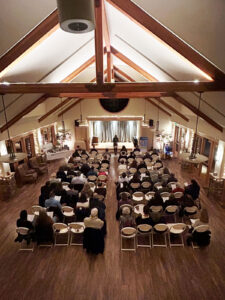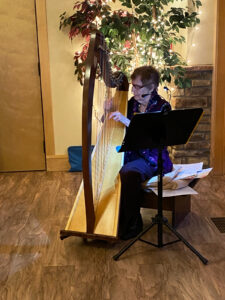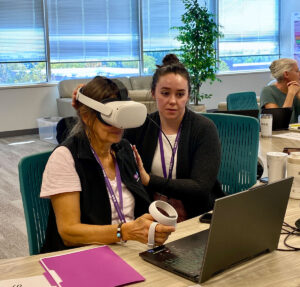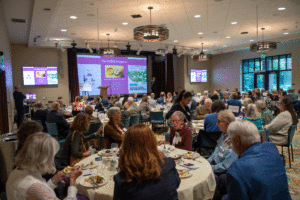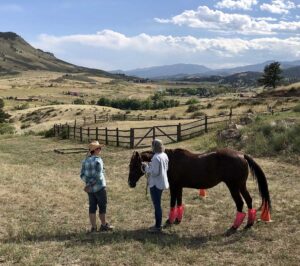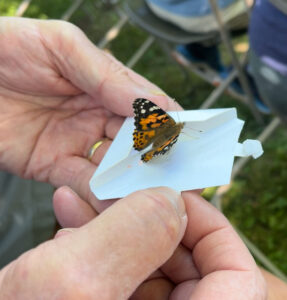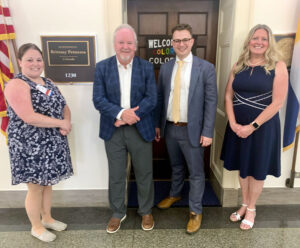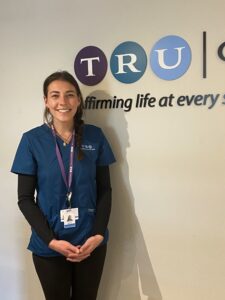Veterans from various eras of military service gathered Tuesday at Boulder’s Frasier Retirement Community for a special Military Recognition Ceremony and Vietnam Veterans Commemoration. The April 1st event, co-presented by Frasier and TRU Community Care, provided a long-overdue welcome home to Vietnam-era veterans while honoring all who have served in the United States military.
The ceremony opened with a presentation of colors by the American Legion Post 32 Honor Guard. Scott Pastor, an Air Force veteran and TRU nurse, led the opening remarks with a powerful message to veterans: “You are not forgotten. You are seen and your service is remembered with gratitude and respect.”
During the recognition of veterans, Pastor noted that there are more than 18 million living veterans in the United States today, representing about 6% of the country’s adult population. The ceremony honored veterans from all branches of service, with special recognition given to veterans of World War II, the Korean War, and the Vietnam era.
The event placed particular emphasis on Vietnam-era veterans, who make up 30% of all veterans today. Gene Schiferl, a Vietnam War combat veteran who served in 1967-68 and experienced the Tet Offensive, led the Vietnam Veteran Commemoration pinning.
“It was not popular during the Vietnam War era to be in the military,” Schiferl explained. “One of the most tragic legacies… was the mistreatment that many Vietnam veterans received upon their return to this country.”
In a segment called “Echoes of Service,” Army veteran and medic Larry Sturgeon shared personal experiences from his time serving during the Vietnam era. Sturgeon recalled his basic training at Fort Bliss and his service at a hospital in Japan where wounded service members were sent. He spoke candidly about the difficult homecoming many Vietnam veterans faced.
“Many people realized that we weren’t really accomplishing anything, and the price we were paying was just too great. Unfortunately, they got the war confused with the warriors, and many of my fellow veterans were seriously mistreated on the way home.”
Boulder Mayor Aaron Brockett offered heartfelt words of appreciation on behalf of the community. The Mayor also highlighted TRU Community Care’s involvement with the VCP Village in Longmont, a tiny home community for veterans experiencing homelessness. “This gets them off the street. It gets them into their own house with a door that they can close and lock and a place for them to live and recover from the wounds that they’ve experienced, whether those were physical, mental, or any other kind,” Brockett explained.
Another highlight of the ceremony was the presentation of honor quilts by Bee Sew Brave, a group associated with the Longmont Quilt Guild. “Our quilts are made with a lot of love, and when we present them, we present them with that love and a hug. And we hope you take that with you wherever you go,” said a representative from the group prior to presenting special quilts to three World War II veterans in attendance.
The quilt guild’s ongoing mission includes providing quilts for veterans moving into VCP tiny homes and for wounded warriors participating in adaptive winter sports programs in Estes Park.
“Last year, we gave away 50 quilts to veterans,” the Bee Sew Brave representative shared. “Every time we get asked to come and work with the Honor Guard, it’s amazing. We meet amazing people. We hear amazing stories. We hear a lot of healing from our quilts, the stories that we get back from veterans that has helped them.”
The ceremony aligned with Colorado’s Welcome Home Vietnam Veterans Day, established in 2021 and observed on March 30th, which gives Americans the opportunity to say “welcome home” to Vietnam veterans who may not have received proper recognition upon their return.
TRU Community Care, founded as Boulder Hospice in 1976, is a five-star-level hospice in the National Alliance for Care at Home We Honor Veterans program, created in collaboration with the Department of Veterans Affairs.
